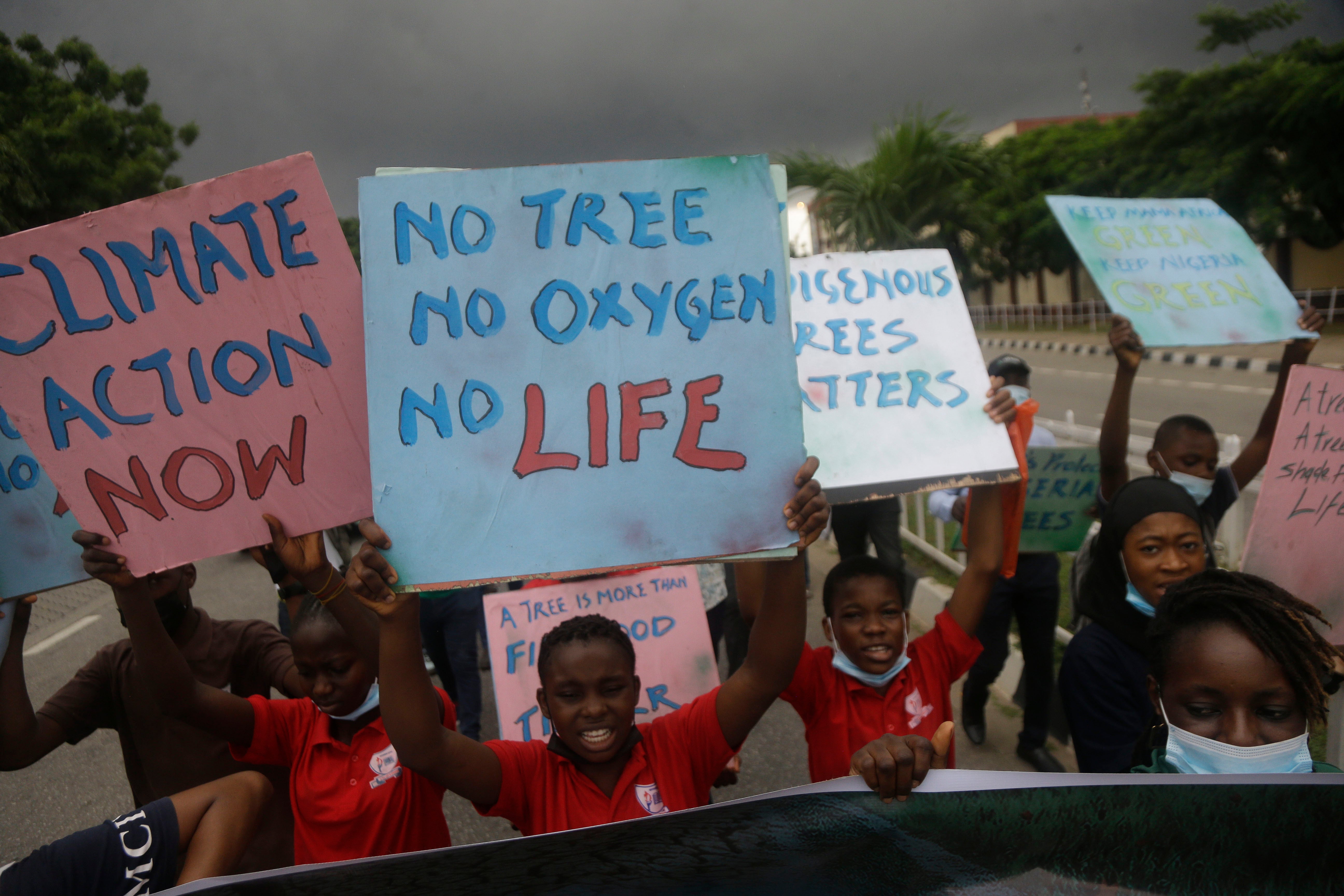How it feels to watch world leaders make catastrophic climate decisions
Hatred, bigotry and injustice are absolutely central to the climate crisis, writes Grace Maddrell

I struggle to describe how it feels, watching world leaders make decisions that will catastrophically impact the world we live in. I truly believe that the key to tackling the climate crisis is in our attitude, and if connecting with the crisis in an emotional way is what it takes, that is what we must do.
A fundamental attitude change would go a long way towards bringing about the systemic shift we need if we hope to lessen the devastating impact of climate change, and build a better world.
Since first waking up to the climate crisis at the age of 13, I’ve navigated a multitude of emotional states. Of course, being able to identify and then work through these feelings is a privilege in and of itself. For those directly facing the worst impact of the crisis, this is a luxury they often don’t have. After all, if you’re running from a fire (literally or metaphorically), you’re not likely to be simultaneously untangling your emotions in regard to the decisions that caused the blaze.
The first emotion that comes to mind is anger. World leaders don’t have a right to make these choices, to trade people’s lives for their own money and power, and the fact that they do it all the same makes me furious.
I’m angry on behalf of those facing the worst impacts, I’m angry about how much worse it can get in the future. I’m angry that they’re not listening. They’re not listening to those most affected. They’re not listening to young people, especially young people from front line communities. In many ways, anger was what helped drive me to action when I first became an activist.
Secondly, I feel a deep sadness. Grief for all that’s been lost, and all that we still have to lose. I’m lucky that this is still abstract for me. For many who have lost loved ones, homes and their livelihoods to climate disasters, their grief is more immediate. And while sometimes grief can prompt action, it can also make you feel hopeless.
Fear is prominent too. It truly frightens me that there are people out there – the most powerful people, no less – who have such little regard for life, for those who are the most vulnerable or for their own children and grandchildren.
I’m scared of what the future could hold. I’m scared of a world where people divide and tear others down for no reason other than their own hatred. And make no mistake, hatred, bigotry and injustice are absolutely central to this crisis. They caused it, they perpetuate it, they cause others to ignore it because it’s affecting people they see as less than them.
The climate crisis has ultimately been brought about through colonialism, racism, capitalism, selfishness, greed and inequality. If there were a way to change the attitudes of the people who perpetuate these things, the world would be a much better place. If people cared more about others, and were more inclined to fight for justice, we would have much more of a chance of averting further climate catastrophes, helping those who have already been the victims of them and changing society for the better.
These feelings combine, I suppose, to activate my activism. Anger served as a catalyst and that’s why, in March 2019, I went on my first climate strike and later threw myself into activism. The feeling that comes from doing something, from taking a stand, has carried me to protest after protest since.
These emotions aren’t easy to navigate though, and many people have it worse. None of this is easy or fair. The sadness and hopelessness, with a large dose of burnout and depression, also makes activism harder and harder to keep up with.
We need climate and social justice now, because no one should have to be afraid that their leaders will sell people’s lives for their own gain.
Tomorrow is Too Late, a book of essays from young activists all over the world, edited by Grace Maddrell, is out on 30 September
Join our commenting forum
Join thought-provoking conversations, follow other Independent readers and see their replies
Comments
Bookmark popover
Removed from bookmarks